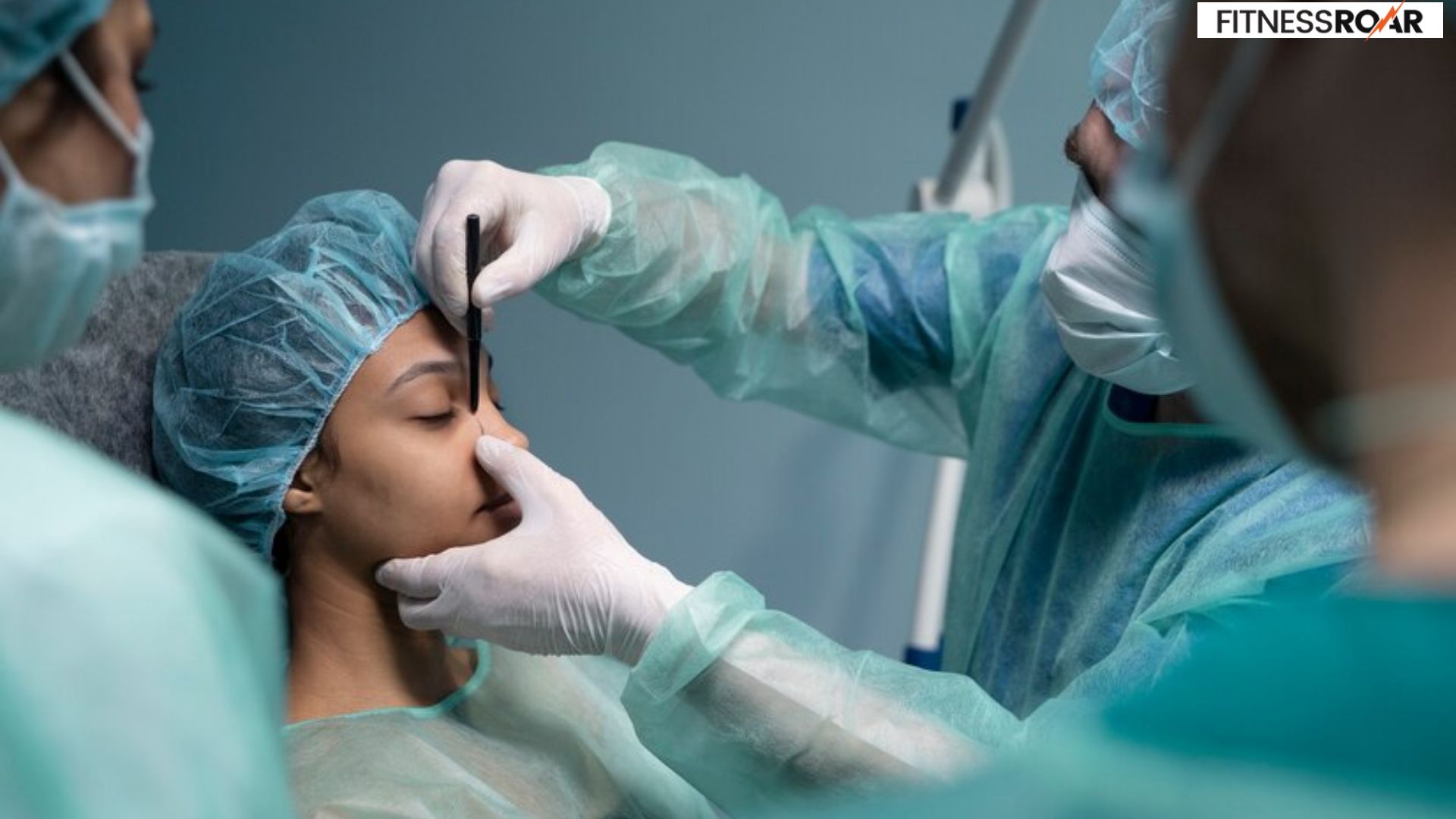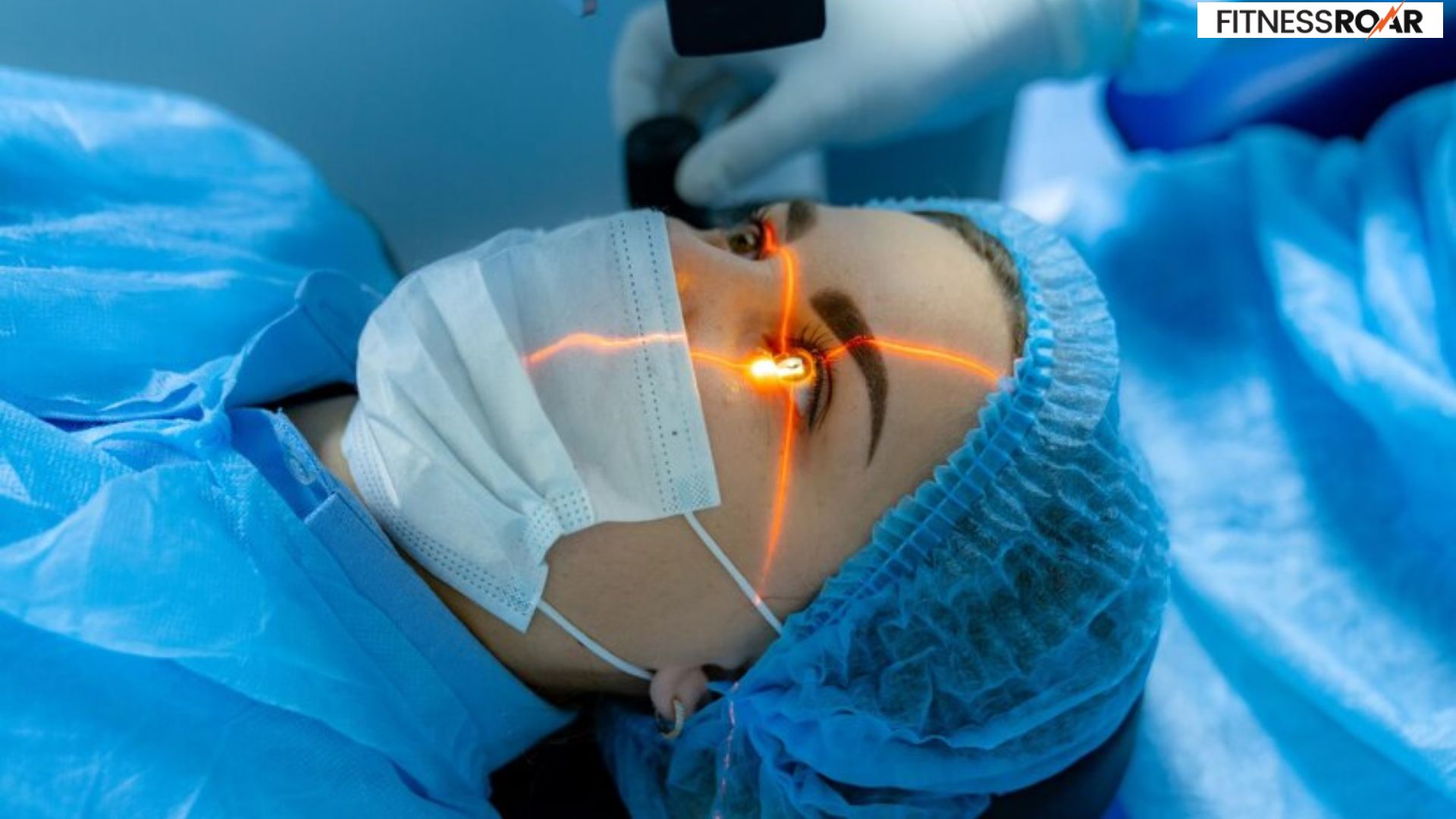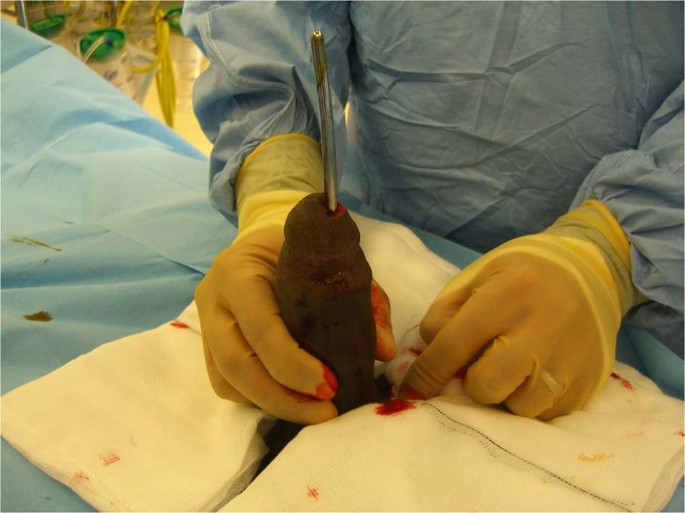The Ultimate Guide to Laser Eye Surgery

Laser eye surgery, often referred to as LASIK (laser-assisted in situ keratomileusis), is a popular procedure that can improve your vision by correcting refractive errors. These errors prevent light from focusing correctly on your retina, leading to blurry vision.
- Laser eye surgery uses lasers to reshape the cornea, the clear dome at the front of your eye.
- This reshaping corrects refractive errors like nearsightedness, farsightedness, and astigmatism.
- The goal is to reduce or eliminate your dependence on glasses or contact lenses.
- Laser eye surgery is a significant decision that impacts your vision.
- Understanding the procedure’s details, potential risks, and recovery process is crucial.
- Informed decision-making ensures you choose the best option for your eye health and vision goals.
Also Read: 6 Tips to Slow Down Aging
Different Types of Laser Eye Surgery
Laser eye surgery isn’t a one-size-fits-all solution. Several techniques exist, each with its advantages and considerations. Here’s a breakdown of some common types:
LASIK (Laser-Assisted In Situ Keratomileusis)
LASIK is the most widely performed laser vision correction surgery. Here’s what it entails:
- A thin flap is created in the cornea using a laser or a blade.
- An excimer laser reshapes the underlying corneal tissue.
- The flap is then repositioned and heals naturally.
Candidacy: LASIK is generally suitable for those with healthy corneas of sufficient thickness and stable vision prescriptions.
Outcomes: LASIK offers a fast recovery with minimal discomfort. Most patients achieve 20/20 vision or close to it.
PRK (Photorefractive Keratectomy)
PRK is an older technique, but it can be a good option for some patients. Here’s how it differs:
- No corneal flap is created.
- The laser directly ablates (removes) the surface layer of the cornea.
- A bandage contact lens is worn for several days to promote healing.
Candidacy: PRK may be preferred for individuals with thin corneas or those who participate in high-contact sports.
Outcomes: Recovery from PRK is slower than LASIK, with some discomfort initially. Vision improvement takes longer, but the final results can be very good.
SMILE (Small Incision Lenticule Extraction)
SMILE is a newer, minimally invasive technique with some unique features:
- A femtosecond laser creates a lenticule (a disc of corneal tissue) within the cornea.
- A small incision is made, and the lenticule is removed through this opening.
- No corneal flap is involved.
Candidacy: SMILE may be suitable for those seeking a minimally invasive approach and have specific corneal characteristics.
Outcomes: SMILE offers advantages like rapid recovery and potentially less dry eye compared to LASIK.
Comparisons between the different types
| Feature | LASIK | PRK | SMILE |
| Flap creation | Yes (laser or blade) | No | No |
| Recovery time | Faster | Slower | Faster |
| Initial discomfort | Less | More | Less |
| Candidacy criteria | Thicker corneas | Thin corneas, sports | Specific corneal characteristics |
| Dry eye potential | More likely | Less likely | Less likely |
Remember: This is a general comparison. Consulting an ophthalmologist is essential to determine which type of laser eye surgery, if any, is best suited for your individual needs and eye health.
Also Read: Ways to Lose Mummy Tummy
Determining Your Candidacy
Laser eye surgery isn’t right for everyone. Here’s how to know if you’re a good candidate:
Several factors influence whether you’re a suitable candidate for laser eye surgery. Here are some key considerations:
- Age: Generally, you should be above 18 and have a stable vision prescription for at least a year (ideally 2-3 years).
- Eye health: Healthy corneas with sufficient thickness are crucial. Conditions like dry eye, cataracts, or glaucoma may affect candidacy.
- Prescription: Your specific refractive error (nearsightedness, farsightedness, astigmatism) and its severity influence suitability.
- Overall health: Certain medical conditions can impact healing or increase risks.
A comprehensive pre-operative evaluation is vital before proceeding with laser eye surgery. This typically involves:
- Detailed eye exam: Your ophthalmologist will assess your corneal thickness, tear production, and overall eye health.
- Discussion of your medical history: Disclose any existing conditions and medications you take.
- Review of your expectations: A clear understanding of the procedure’s potential benefits and limitations is crucial.
Here’s a general overview of common criteria for being a good candidate for laser eye surgery:
- Age 18 or older with a stable vision prescription for at least 1-2 years.
- Generally good overall health and no uncontrolled medical conditions.
- Healthy eyes without pre-existing corneal diseases or infections.
- Sufficient corneal thickness to safely withstand laser treatment.
- Realistic expectations about the outcomes and potential for needing reading glasses after 40 (presbyopia).
Remember: This information provides a general starting point. A thorough consultation with your ophthalmologist is essential to determine your individual candidacy for laser eye surgery. They can address your specific situation and recommend the most suitable procedure for you.
Risks and Complications
Laser eye surgery, like any medical procedure, carries some potential risks and complications. While uncommon, understanding these is crucial for informed decision-making.
Here’s a breakdown of some potential risks to consider:
- Undercorrection or overcorrection: This can result in blurry vision and may require an enhancement procedure.
- Dry eyes: Temporary dry eye is common, but some may experience persistent dryness requiring lubricating drops.
- Glare and halos: Light sensitivity, particularly at night, can occur in some patients. These effects usually diminish over time but may persist in rare cases.
- Infection: Though rare, infection is a risk with any surgery and requires prompt treatment.
- Flap complications (LASIK): If a corneal flap is created (LASIK), issues like displacement or irregularities can arise.
- Loss of best-corrected vision (rare): In very rare cases, vision may not improve or could even worsen after surgery.
While these risks are relatively uncommon, being aware of them allows you to:
- Make an informed decision about whether laser eye surgery is right for you.
- Discuss your concerns with your ophthalmologist and understand the likelihood of these complications in your specific case.
- Know what to expect after surgery and be prepared to report any unusual symptoms to your doctor promptly.
Here are some ways to potentially minimize risks associated with laser eye surgery:
- Choosing an experienced and qualified ophthalmologist: Surgeon expertise plays a significant role in successful outcomes.
- Having a thorough pre-operative evaluation: This helps identify potential issues and determine candidacy.
- Following post-operative instructions carefully: Proper care reduces the risk of infection and promotes healing.
- Maintaining open communication with your ophthalmologist: Address any concerns or complications promptly.
Remember, this is not an exhaustive list of risks or strategies. Consulting a qualified ophthalmologist is essential to understand the specific risks and benefits associated with laser eye surgery in your situation.
Also Read: Feeling Tired? Superfoods to Fight Fatigue
Benefits of Laser Eye Surgery
For many people, laser eye surgery offers a range of significant advantages that can improve their quality of life. Here’s a breakdown of some key benefits:
- The primary benefit is achieving sharper, clearer vision without the need for corrective lenses.
- This can significantly improve your ability to see details at all distances.
- Many patients experience a newfound freedom and enjoyment in everyday activities like driving, reading, and participating in sports.
- Laser eye surgery can significantly reduce or even eliminate your dependence on corrective eyewear.
This offers several advantages, including:
- Convenience: No more worrying about losing or damaging glasses or contact lenses.
- Comfort: Freedom from the physical limitations of glasses or the potential irritation of contact lenses.
- Cost-savings: Over time, you can save money by not needing to purchase new glasses or contact lens solution.
- Improved self-confidence: Some people find they feel more confident without relying on corrective lenses.
Laser eye surgery can positively impact your lifestyle in various ways:
- Increased participation in physical activities: No more worrying about glasses or contacts falling out during sports or exercise.
- Improved appearance: For some, eliminating the need for glasses can be a welcome aesthetic change.
- Greater freedom in choosing eyewear: Enjoy the ability to wear sunglasses or other fashionable eyewear without the need for prescription lenses.
- Simplified daily routines: Waking up and seeing clearly without reaching for glasses can be a time-saver and a convenience.
Remember: While these benefits are significant for many, individual experiences may vary. Consulting an ophthalmologist can help you determine if laser eye surgery is right for you and the potential vision improvements you can expect.
Laser Eye Surgery Recovery
Laser eye surgery recovery is a crucial phase that impacts your long-term vision results. Here’s a breakdown of what to expect:
The recovery process can vary depending on the specific procedure you undergo. However, some general aspects apply:
- Immediately after surgery: You may experience some discomfort, blurry vision, and light sensitivity. Rest and follow your doctor’s instructions regarding eye drops and medication.
- The first few days: Vision may fluctuate, and dry eyes are common. Avoid strenuous activities, rubbing your eyes, and getting water in your eyes (unless your doctor allows it).
- The first few weeks: Most patients experience significant vision improvement. However, some lingering dryness, light sensitivity, or halos around lights may occur.
- Up to 3-6 months: Healing continues, and your vision should stabilize completely. Follow-up appointments with your ophthalmologist are essential during this time.
Here are some common experiences you might encounter after laser eye surgery:
- Blurry vision: This is normal initially and typically improves within days.
- Discomfort: Temporary stinging, burning, or itchiness may occur. Your doctor will prescribe medication to manage this.
- Dry eyes: Many patients experience dry eyes, particularly after LASIK. Artificial tears can help alleviate this discomfort.
- Light sensitivity: Increased sensitivity to bright lights or sunlight is common and usually diminishes over time.
- Glare and halos: You might see halos or starbursts around lights, especially at night. These effects typically lessen but may persist in rare cases.
Here are some tips to promote a smooth recovery after laser eye surgery:
- Strictly follow your doctor’s post-operative instructions: This includes medication use, eye drop regimen, and activity restrictions.
- Use prescribed eye drops diligently: These can help alleviate dryness and discomfort.
- Get plenty of rest: Allow your eyes time to heal and avoid strenuous activities for the recommended period.
- Protect your eyes from sun exposure: Wear sunglasses that block UVA and UVB rays to shield your eyes from sunlight.
- Avoid rubbing your eyes: This can dislodge the corneal flap (LASIK) and hinder healing.
- Attend all follow-up appointments: These are crucial for monitoring your progress and addressing any concerns.
Remember: These are general guidelines. Your doctor will provide specific instructions tailored to your individual case and the type of surgery you undergo. By following their recommendations and being patient during recovery, you can help ensure a successful outcome from laser eye surgery.
In Crux
Laser eye surgery offers a potential solution for those seeking freedom from corrective lenses and improved vision. We’ve explored various aspects, from the different procedures to the recovery process.
The most important step is consulting with a qualified ophthalmologist. They can assess your individual situation, discuss the different types of laser eye surgery, and determine if you’re a suitable candidate.
For many people, laser eye surgery is a life-changing procedure. The potential benefits of sharper vision, freedom from glasses or contacts, and an enhanced lifestyle are significant. However, it’s crucial to weigh the potential risks and recovery process carefully.
By thoroughly researching, consulting a qualified ophthalmologist, and understanding your individual needs and expectations, you can make an informed decision about whether laser eye surgery is the right choice for you.
How much did you like Our detailed Laser Eye Surgery: Your Comprehensive Guide? Please share your view in the comment box. Also, please share these Blogs with your friends on social media.
Recommended















